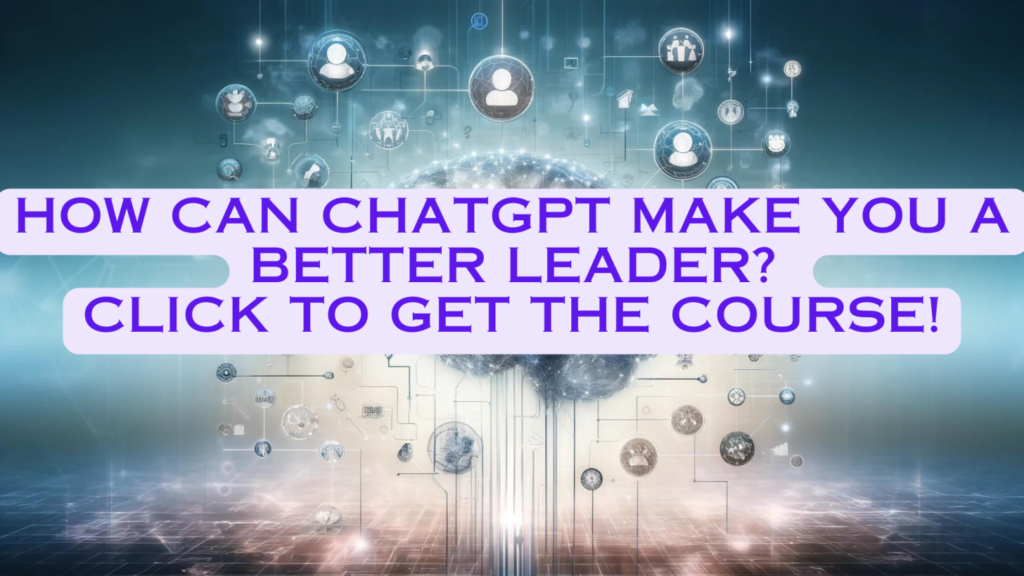Join 40,000 other subscribers who get Great Leadership delivered directly to their inbox each week. You’ll get access to my best thinking and latest content. Sign up today.
In the digital age, effective communication is more crucial than ever, particularly for leaders looking to inspire and engage their teams. With the rise of artificial intelligence, new tools have emerged that can enhance these communication skills. ChatGPT is one of those tools.
By leveraging ChatGPT, leaders can refine their messaging, ensure clarity and precision in their communications, and better understand the nuances of language that resonate with different audiences. Using ChatGPT to become a better communicator is one of the ten things that I talk about in my brand new course, Leadership GPT The Top 10 Ways You Can Use ChatGPT To Become A Better Leader.
Here’s a practical example.
Let’s say you’re the leader of a team that needs to address some conflicts that have been arising amongst employees. You want to mitigate any issues in a firm way that also conveys the need for respect and collaboration. You can simply type in the following prompt into ChatGPT
“I need to write an email to my team addressing some recent conflicts that have arisen. The goal is to encourage open communication and remind everyone of the importance of a respectful and collaborative work environment. Can you help draft this?”
You would then get back the following response from ChatGPT which not only includes an email you can edit and use, but also a subject line.
Subject: Fostering a Collaborative and Respectful Work Environment
Dear Team,
I hope this message finds you well. Over the past few weeks, I’ve observed some tensions within the team that, if left unaddressed, could impact our collaborative efforts and the incredible work environment we’ve all worked so hard to create.
Open communication is the cornerstone of a successful team, and it’s important that we all feel comfortable sharing our thoughts and opinions. However, it’s equally vital that our exchanges remain respectful and constructive. Differences in opinion are natural and can lead to innovative solutions when handled positively.
I want to encourage everyone to reflect on how we interact with each other and to strive for understanding and respect in all our communications. Let’s make a concerted effort to listen actively to our colleagues and consider their viewpoints fully before responding.
If there are any issues or concerns, I urge you to bring them forward. You can reach out directly to me or discuss them openly in our team meetings. Together, we can resolve any issues and continue moving forward as a cohesive unit.
Thank you for your attention to this matter and your continued dedication to our team’s success. Let’s all commit to maintaining an environment where everyone feels valued and heard.
Best regards,
[Your Name]
This is one of the many ways you can use ChatGPT to become a better communicator. Other ideas specifically related to communication include:
-
Rewriting emails with specific goals in mind
-
Drafting presentations that capture the importance of innovation.
-
Creating concise report summaries that can highlight key achievements and areas of improvement (if you upload the report).
-
Suggesting ways to make announcements more inspiring for the team that focus on vision and future-directed goals.
-
Drafting a professional to client feedback that addresses their concerns while maintaining a positive tone.
This is just the tip of the iceberg for what AI tools like ChatGPT can do. They can also help with everything from professional development guidance to meeting preparation to learning new leadership techniques.
If you want to learn all of these and more, then I encourage you to sign up for LeadershipGPT where you will learn the 10 most practical and applicable ways you can use ChatGPT to become a better leader. You’ll get access to my prompts and see exactly how I use them and interact with ChatGPT to get the desired results.

Comments